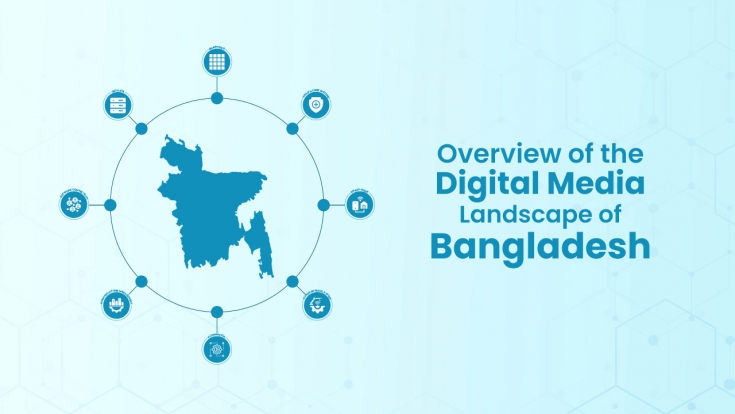
Over the past few decades, Bangladesh’s media industry has undergone significant transformation. From a handful of print newspapers in the 1970s to today’s vibrant mix of TV channels, online platforms, and social media influencers, media development in Bangladesh reflects both progress and persistent challenges.
In the years following independence, Bangladesh’s media sector was largely dominated by state-controlled outlets. However, the 1990s marked a turning point, with the rise of private television channels and more independent newspapers. This period saw a boom in journalistic activity and gave voice to a broader range of political and social opinions.
Today, Bangladesh boasts:
Over 30 private TV channels
Hundreds of daily and weekly newspapers
A rapidly growing number of online news portals
A digital-savvy youth engaging through social media
Technological Advancements
Mobile internet and smartphone penetration have enabled faster, cheaper access to news—especially among the youth.
Economic Liberalization
Private investment in media has led to more channels, job opportunities, and content diversity.
Audience Demand
A growing, educated middle class has created demand for more nuanced, localized, and diverse content.
Social Media
Platforms like Facebook and YouTube have allowed independent creators and citizen journalists to bypass traditional media gatekeepers.
Despite impressive growth, the path to a free and professional media environment is not without roadblocks:
Political Pressure and Censorship
Journalists often face intimidation, lawsuits under the Digital Security Act, and editorial interference—especially when covering sensitive topics.
Ownership Concentration
A few powerful business or political groups own many media outlets, limiting editorial independence.
Lack of Professional Training
Many journalists enter the field without proper training in ethics, investigative techniques, or digital skills.
Digital Misinformation
The explosion of online news has led to unverified, sensational content, eroding public trust.
For Bangladesh to nurture a truly democratic media landscape, several steps are critical:
Legal Reforms
Laws like the Digital Security Act need revision to protect journalistic freedom while addressing cybercrime responsibly.
Independent Media Regulation
A transparent, non-political media regulatory body could help ensure fairness and accountability.
Capacity Building
Investing in journalist training—especially on fact-checking, digital safety, and investigative reporting—is essential.
Support for Local Media
Community radio and regional news outlets must be supported to reflect rural voices and local issues.
Media Literacy Campaigns
Empowering audiences to think critically about media content can improve demand for quality journalism.
Bangladesh’s media sector has made remarkable progress—but development must go beyond quantity and technology. True media development lies in building a free, fair, ethical, and inclusive media ecosystem that serves the public interest, not just political or commercial agendas.